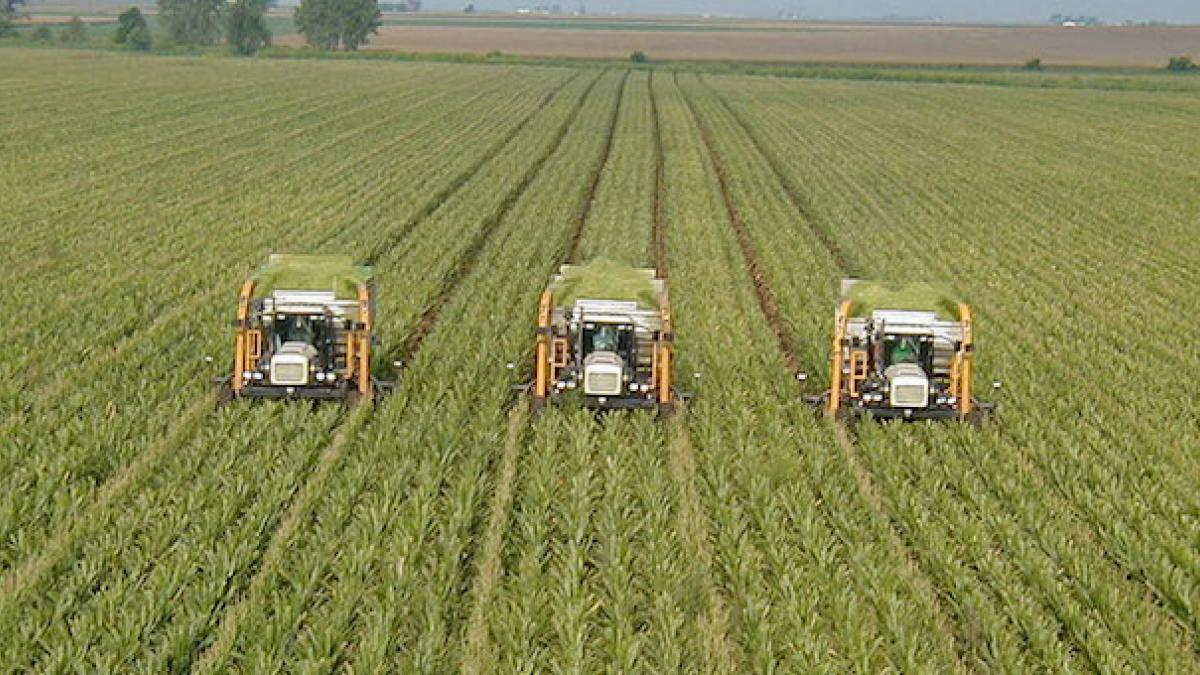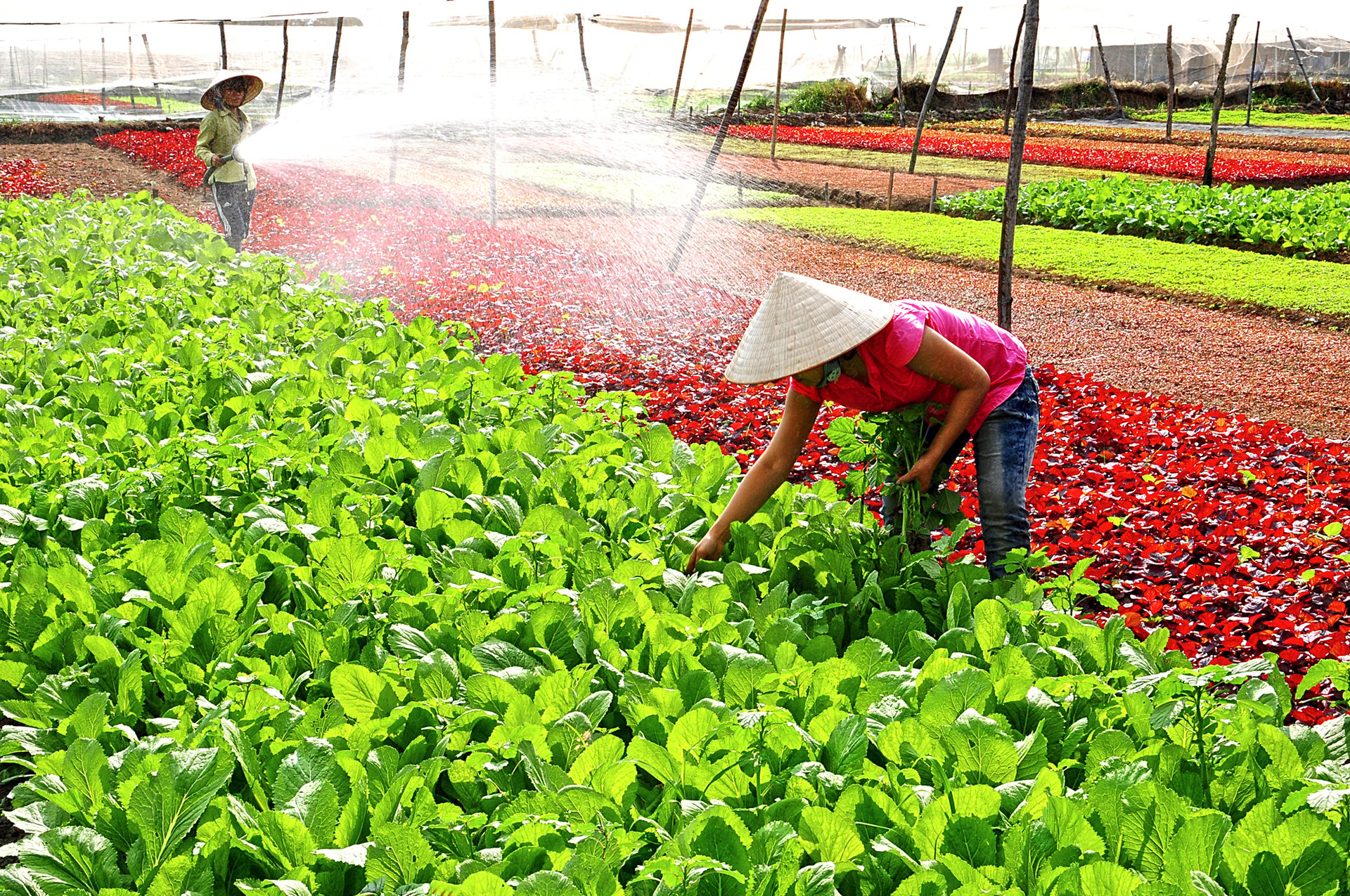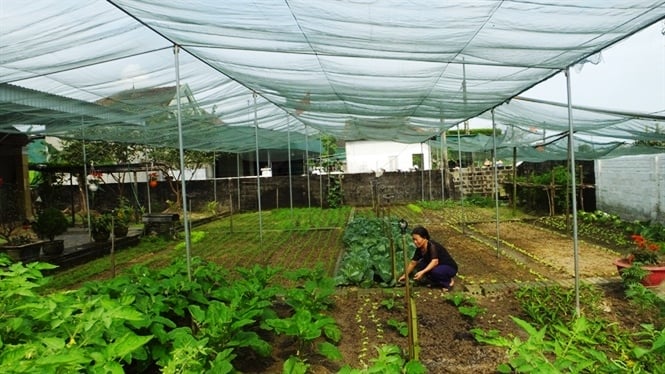November 28, 2025 | 01:00 GMT +7
November 28, 2025 | 01:00 GMT +7
Hotline: 0913.378.918
November 28, 2025 | 01:00 GMT +7
Hotline: 0913.378.918
According to the Food and Agriculture Organization of the United Nations (FAO), by 2026, Vietnamese people, especially those at risk of being left behind, will contribute and benefit equitably from the transition to a sustainable, inclusive, and gender-responsive economy based on innovation, entrepreneurship, productivity enhancement, competitiveness, and decent work.

Change paths must stem from appropriate technologies, digital tools, and platforms that are accessible and adapted to facilitate a smooth and inclusive transition to Fourth Industrial Revolution.
To that end, change paths must stem from national capacities that are strengthened to formulate and implement evidence-based policies and strategies, and enhance enabling ecosystems for inclusive, transformative, and sustainable agriculture, industry, and service sectors for decent work; sustainable, inclusive, and responsible business models and practices, including micro-, small and medium-sized enterprises (MSMEs) and cooperatives, are promoted to increase productivity, trade development, and innovation, and improve working conditions and compliance, with special focus on economic empowerment of the poor, ethnic minorities and women; and appropriate technologies, digital tools, and platforms are accessible and adapted to facilitate a smooth and inclusive transition to Fourth Industrial Revolution.
The UN's strategic interventions will include enhancing the institutional management capacity of heritage and cultural resources; reinforcing development strategies at the level of cities and encouraging public-private sector dialogues; strengthening institutional capacity in governance and financing modality of technology business incubators; strengthening and promoting linkages and synergies between food processing, handicraft, tourism and the creative industries for local economic development and women’s economic development.

The UN will also focus on innovative approaches to improve inclusion, such as developing strategies to mainstream digital services across all sectors.
In addition, strengthen integrated urban policies with interrelated socioeconomic, environmental, and cultural strategies to promote national and local economic growth and prosperity.
The UN will seek to prioritize vulnerable MSMEs and informal sector employment (especially those led by women, people with disability, and ethnic minorities) to enable a bounceback from the impacts of COVID-19 and to enable Viet Nam to build resilience to other shocks.
At the same time, directing to build a greener and more energy-efficient Vietnam; enhance domestic value-addition and productivity; grow domestic markets and consumer demand; connect firms to domestic and global value chains, while alleviating other bottlenecks for the development of Vietnam's small and medium enterprises, cooperatives and household economy.

It cannot be denied that “rural and agricultural communities remain one of the poorest and most vulnerable populations, especially in remote areas.
The UN intends to provide solutions that increase access to Information and Communication Technologies (ICT) services, expanding access to 4G and 5G technology and raising ICT capabilities among MSMEs, cooperatives, and disadvantaged groups.
The UN will also focus on innovative approaches to improve inclusion, such as developing strategies to mainstream digital services across all sectors as part of broadening the digital economy; promoting e-commerce adoption among MSMEs and cooperatives; developing innovative platforms for children and young people, particularly girls and young women, to learn and improve their skills for future employment; and developing and enforcing labor market policies for re-skilling of migrant and informal workers, particularly female workers in a digital economy.
FAO highly appreciates the Strategy of “Restructuring agriculture and rural economy in the period 2021-2030”, considering the great progress of Vietnam in poverty reduction, ensuring food security as well as promoting economic growth and socio-economic development.

The UN intends to provide solutions that increase access to Information and Communication Technologies (ICT) services.
However, it cannot be denied that “rural and agricultural communities remain one of the poorest and most vulnerable populations, especially in remote areas” and that “significant growth in agriculture has been achieved” at the expense of the natural environment, especially the depletion of natural resources, which increases greenhouse gas emissions, as well as causes people to migrate from rural to urban areas. Implementing UN activities in support of Vietnam's economic transformation, FAO and other members have proposed many recommendations to the Government of Vietnam, which focus on specific topics:
Translated by Linh Linh

(VAN) On November 27, in the meeting with Minister Tran Duc Thang, Mayor Yin Yong shared Beijing’s experience to improve environment and air quality.

(VAN) After 30 years, both sides identified strategic areas of cooperation: sustainable production, increasing coffee value and training for farmers.
/2025/11/27/4910-4-164708_294.jpg)
(VAN) On the afternoon of November 27 in Beijing, Minister of Agriculture and Environment Tran Duc Thang held a working session with several major Chinese enterprises operating in the agriculture and environment sector.

(VAN) The Department of Animal Health issued a provisional guideline requesting local authorities to increase surveillance, collect samples for testing, and conduct epidemiological investigations according to the established procedure.

(VAN) The United Nations recommends that Vietnam utilize data and artificial intelligence to enhance early disaster warnings and reduce GDP losses by 3.2% in the context of climate change.

(VAN) On the morning of November 27 in Beijing, Minister Tran Duc Thang and the Deputy Commissioner General of the General Administration of Customs of China signed a protocol on fresh jackfruit exports.

(VAN) As floodwaters recede, a vast network of irrigation works across eastern Gia Lai is emerging in a state of severe disrepair, with extensive damage demanding urgent restoration ahead of the 2025-2026 winter-spring cropping season.